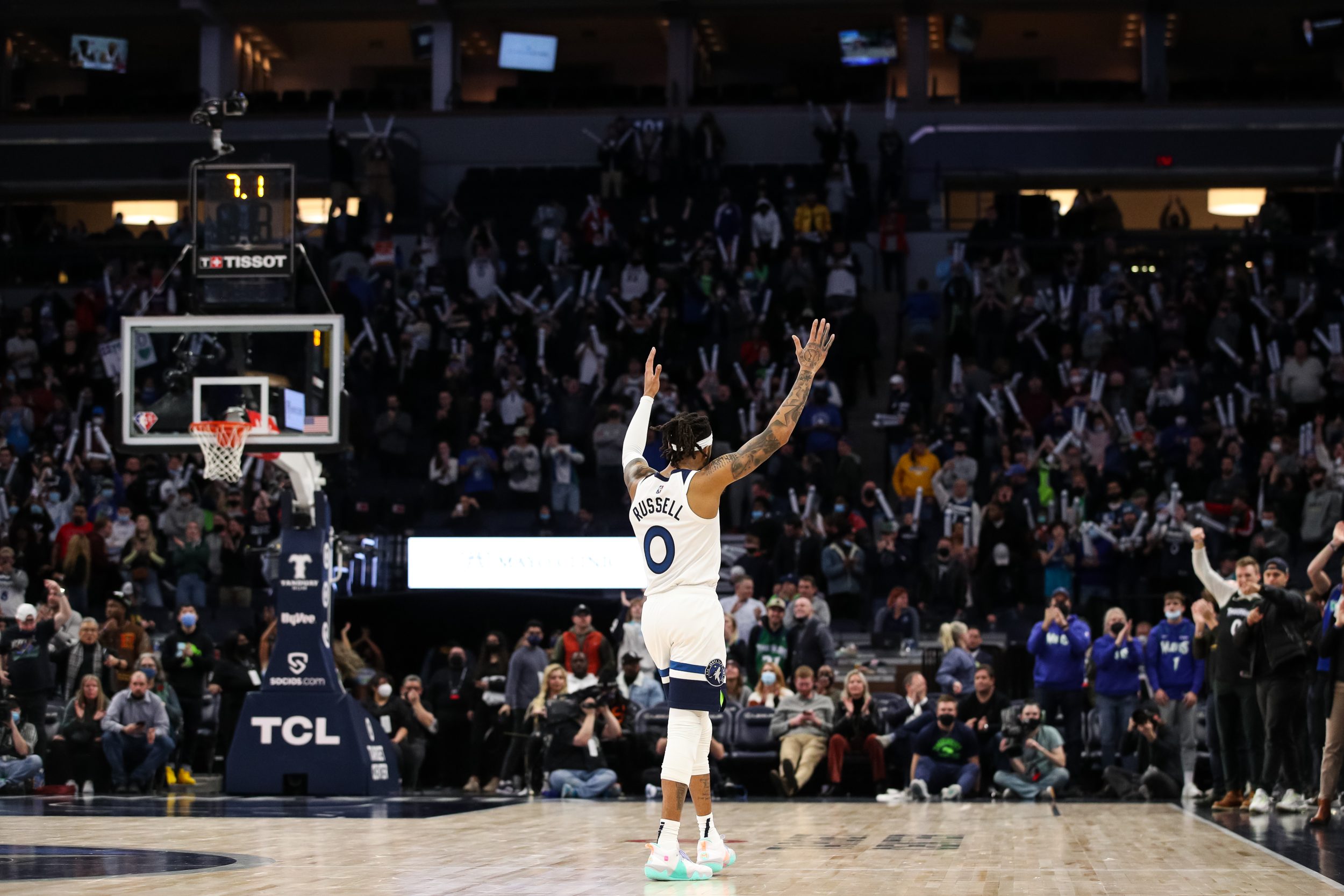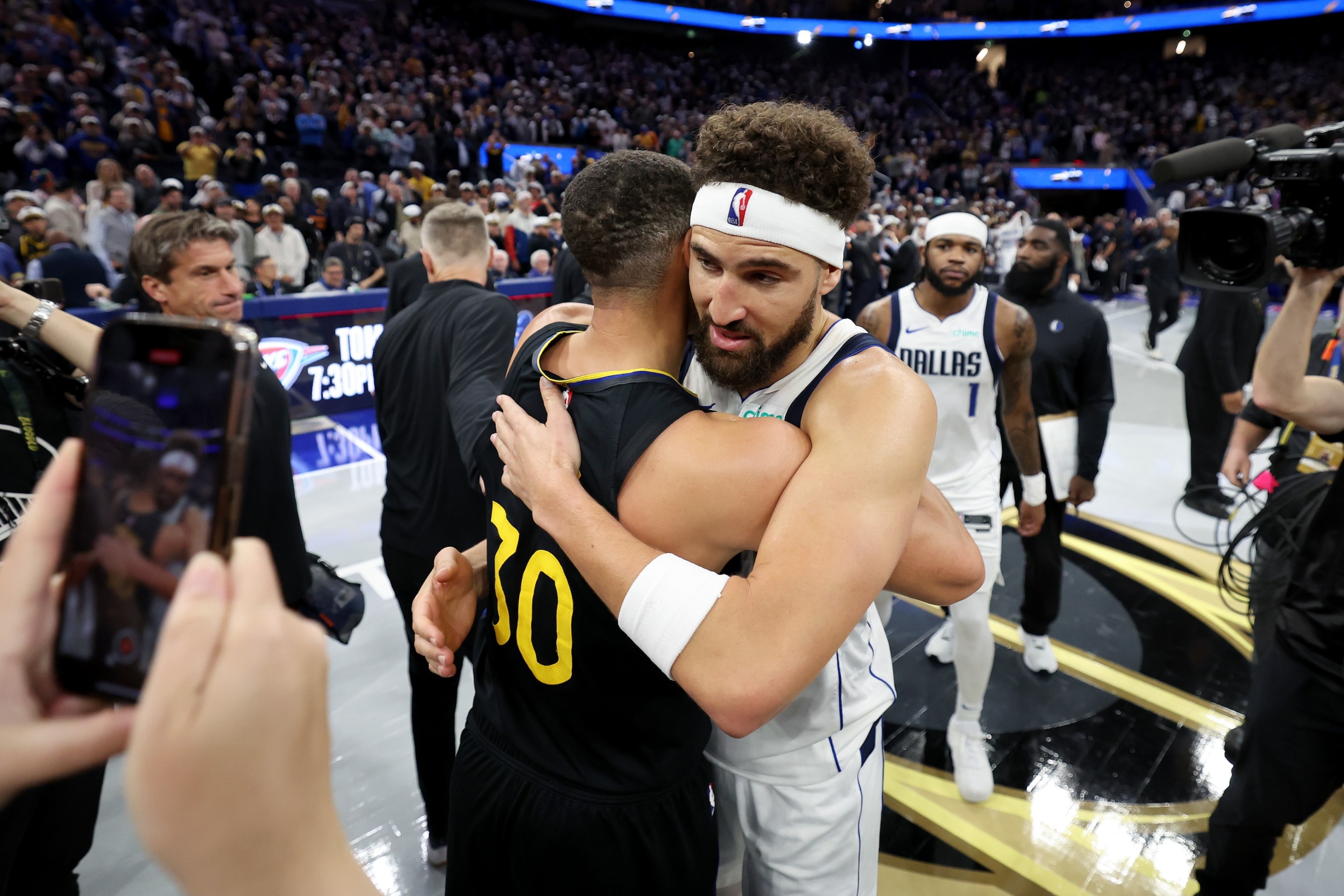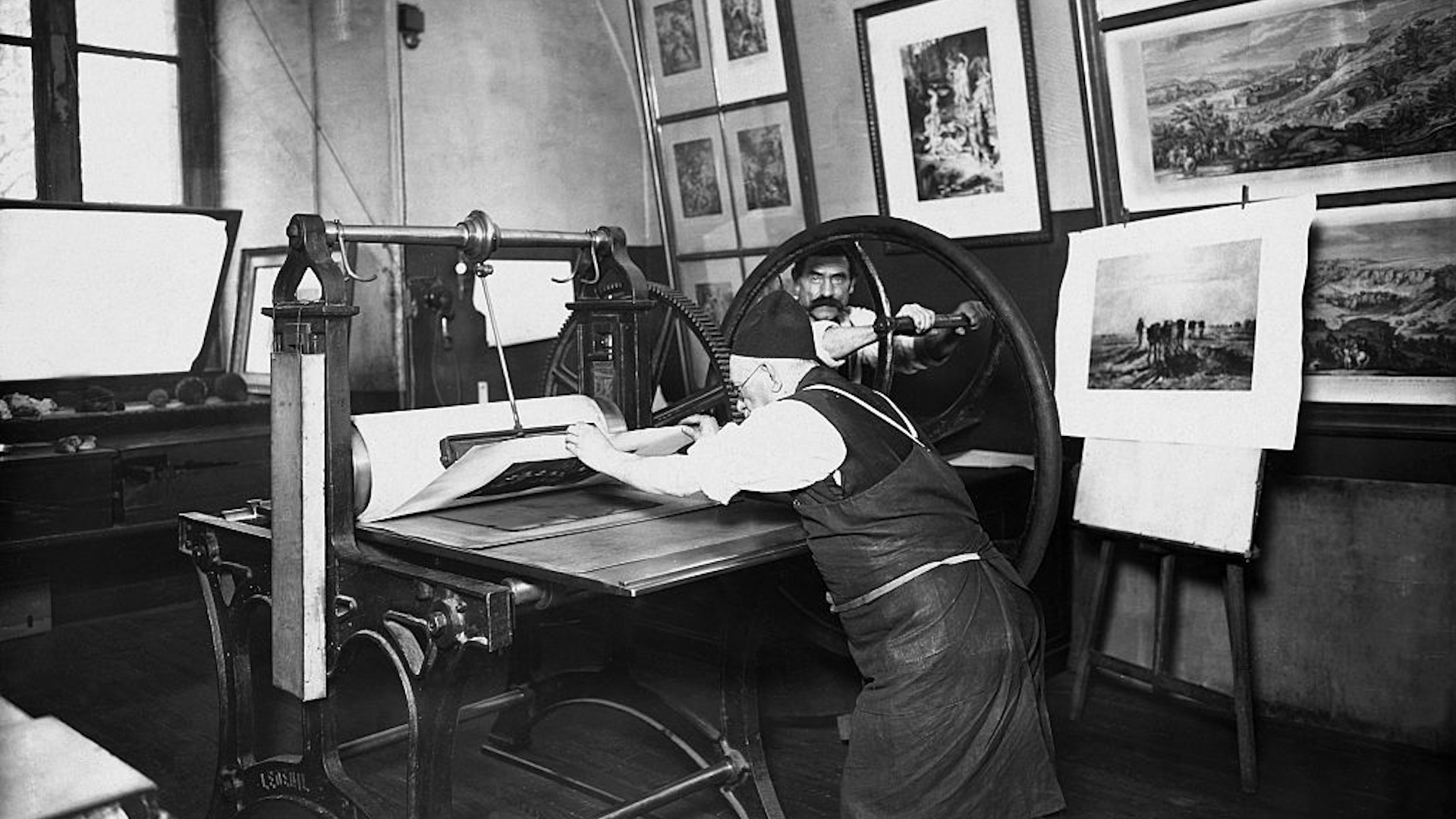The Minnesota Timberwolves erased a 15-point deficit on their home court Thursday night and came all the way back to grab a win over Ja Morant and the world-beating Memphis Grizzlies. No, this improbable-seeming outcome was not caused by Morant's legs falling off, although he did have a brutally inefficient game and at one point caused the entire hoops-watching world to clench in unison when he limped off the court with a leg cramp following a painful-looking near-fall in the third quarter. Morant was simply outplayed, you see, by Timberwolves counterpart D'Angelo Russell. Russell, now on his fourth team in seven seasons as a pro, seems finally to have hit on a team and a role and an environment that fit his idiosyncratic talents into a winning formula, as a member of the Minnesota Timberwolves. What a profoundly accursed combination of words to put into writing under one's own byline, before clicking the "publish" button. Nevertheless! [click]
In an otherwise sloppy game between teams who seemed like they could've used another day of all-star break, Russell shot 13 of 21 from the field, scored 23 of his 37 points in the fourth quarter, and carried the Timberwolves through the closing stages of an important win over a very good opponent. When the teams were trading the lead back and forth late, it was Russell who made the big heroic plays to nudge the Wolves out in front, and then eventually to lead them out of arm's reach as Memphis failed to answer.
What I think makes it feel somewhat dangerous for a person who values the respect of his readers and peers to take Russell's success in Minnesota at face value is that none of it is very different from what he's done at other stops in his NBA journey, except now it's suddenly contributing to wins instead of losses. Russell, a career 42 percent shooter, is making just 41.4 percent of his shots this season, including a not-very-impressive 35 percent of his threes. His assists per game (seven) have ticked up, and his turnovers (2.6 per game) have ticked down, but not so decisively that you would point at ball security or playmaking as what accounts for why he is suddenly reliably winning his minutes for the first time in his career. But that's what's happening: The Wolves are a whopping 10.5 points better by net rating with Russell on the floor this year, by a solid margin the best mark on the team.
Playing with two other big-time offensive players has helped Russell, by moving him gently away from the alpha responsibilities that have tended to exacerbate his weaknesses as a primary scorer. It has also helped that Russell is surviving defensively. Earlier in his career Russell was a sore spot on that end, vulnerable to quicker guards, easily distracted when away from the ball, and not quite sturdy enough to hold up in positional mismatches. Russell has not become Tony Allen, but he is now performing capably enough on defense that he leads all Timberwolves rotation players in defensive rating. A capable defensive guard who on the right night can do some heavy lifting as a shooter and finisher is a real asset for a team that can afford to endure Russell's overall inefficiency as a scorer.
Some nights it doesn't work and Russell looks like crud—he went 2-for-11 in a 12-point loss in Minnesota's last game before the break—but the Wolves have put him in a position where they don't need him to be a hero nightly, so long as he can still bust out the odd heroic performance when circumstances require it. “They can’t stop all of us. I think that’s the hardest thing for any team, to stop all three of us,” Russell said after his big night. “If something’s not working, we see the next plan working.” It is perhaps the happiest development of Russell's career that he is now definitively the next plan, and is rarely the first one.
It's striking to recall how far Russell's star had fallen by the time he was acquired by the Wolves, back in 2020. That whole trade, in fact, will have to be reevaluated: The cost of Russell for the Wolves was Andrew Wiggins, then just a profoundly unwanted player on one of the gloomiest rosters in the sport, plus a protected draft pick. Russell had had an awful time in Golden State, going from Stephen Curry's understudy to the sole ambulatory veteran ball-handler for a team enduring a nightmarish 12–40 start to that season. Golden State picked up Russell in the summer of 2019 because they needed to recoup something—anything—in the sign-and-trade that broke up one of the most fearsome rosters in modern NBA history and sent Kevin Durant to the Brooklyn Nets.That gig with the Warriors was supposed to build on a promising 2018–19 season for Russell with the Nets, but instead it was a disaster. That the Wolves parted with a draft pick in order to acquire Russell mid-season was seen at the time less as a reflection of his positive value than as a dreary sign of Andrew Wiggins's negative value, and of Minnesota's desperation to win favor with an apathetic Karl-Anthony Towns.
And now Wiggins has started an all-star game, and Russell is an indispensable player for a team with a realistic shot at playing its way clear of the play-in zone! Over their last 15 games the Wolves have the second best offense in the NBA; for the season they're solidly in the middle of the pack defensively, which may not sound like much until you realize that in no season of Towns's career have they finished outside of the NBA's bottom 10 in defensive efficiency. They've yet to really notch a signature win on the season, but splitting the season series against a Grizzlies squad that lately has looked like a team of destiny is nothing to sneeze at! The Wolves may not yet be a contender, but on Feb. 25 you must say that the Minnesota Timberwolves, led by Towns and Russell and second-year goofball Anthony Edwards, are good. You must!
I have been putting off writing a positive blog about the Timberwolves, because frankly they are a hard team to believe in. No one on their roster has ever been all that good in the NBA before, at least not in a way that counts for anything. The organization has won exactly one (1) playoff game since 2004, and it fired the head coach of that squad 40 games into the following season. They've had spells where they looked promising over that time, and then plummeted back into old habits of organizational dysfunction and absolutely miserable basketball, as if compelled by gravity. And if they should happen to "pull a Timberwolves" over the remaining 23 games of this regular season and somehow finish 14th in the Western Conference, so help me God I will sneak into the Defector CMS late one night and delete this blog so fast it will make Tom Ley's head spin.
Minnesota's schedule stiffens noticeably toward the end of March, and if they're still in play-in territory it's not impossible they could find themselves fighting tooth and nail to hold onto this hard-won relevance. But through 59 games, they've proven they can sustain good and competent basketball, and Russell has proven that he can be a major part of that. These can be frightening concepts to accept for hoops fans who've grown familiar with Russell's whole deal and even more familiar with the deal of the organization that signs his paychecks. But right now the formula is working.





